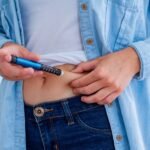When they want to know if a vitamin or nutritional supplement can benefit them. it is safe to take, many individuals turn to the internet, question friends and relatives, or consult reference books. Another thing to consider is whether the supplement includes exactly what it says on the label and at the amount recommended.
It’s not always simple to find an answer to this question. Because supplements are not regulated as pharmaceuticals by the US Food and Drug Administration. There is no guarantee of efficacy or safety – or that the product contents match the labeling. So, how do you know that the best supplements store you’re buying from is legit?
Here are the recommendations.
#1. Look for the USP (United States Pharmacopeia) or Consumer Lab logo.
Purchasing products with labels indicating that they have been tested by either the independent, nonprofit US Pharmacopoeia (USP) Convention Dietary Supplement Verification Program or ConsumerLab.com. It is a good way to ensure that a dietary supplement is of high quality.
A USP verified product includes the listed constituents at the strength indicated. It is not contaminated with any other compounds, such as heavy metals or microorganisms. Consumer Lab.com a business that gathers multiple brands of a product and independently tests, reviews, compares, and rates them.
Both USP and ConsumerLab.com offer web pages with full information on their findings, albeit the latter requires a paid subscription. This is one level of assurance but there is no guarantee. So, buying nutritional supplements from a well-known health shop, pharmacy, or other reputable source ensures quality.
#2. Choose “standardized” products.
Purchasing standardized dietary supplements, in which the amount of a certain chemical (known as a chemical marker) is displayed on a product label, gives you some assurance that the active molecule is present in the desired amount.
Natural products vary from batch to batch. Potency can be affected by time and season. While one manufacturer may simply ground up ginseng root, another may produce a considerably more potent extract containing the medicinal components. Look for the ginseng that is standardized to the weight or proportion of the physiologically active ingredient before purchasing.
Think of standardization data as knowing how much caffeine is in a cup of coffee. Because the caffeine concentration differs between brands, the intensity and effect of a cup of coffee will vary.
#3. The importance of reporting on your use, as well as any negative reactions.
Consumers should also interact with healthcare providers about cultural or lifestyle practices, in addition to the universal precaution of speaking with healthcare professionals about vitamin or other dietary supplement use.
What an American consumer could consider a dietary supplement, for example, a meal or mainstream medicine in another country. Ginger and ginseng, for example, are often consumed as foods in Asia rather than as medicines or nutritional supplements.
If a consumer has an adverse reaction to a dietary supplement, he or she should report it to the FDA’s Med Watch Program. It’s critical because if the FDA notices a pattern whether it’s due to mislabeling or other issues it can intervene if required.













